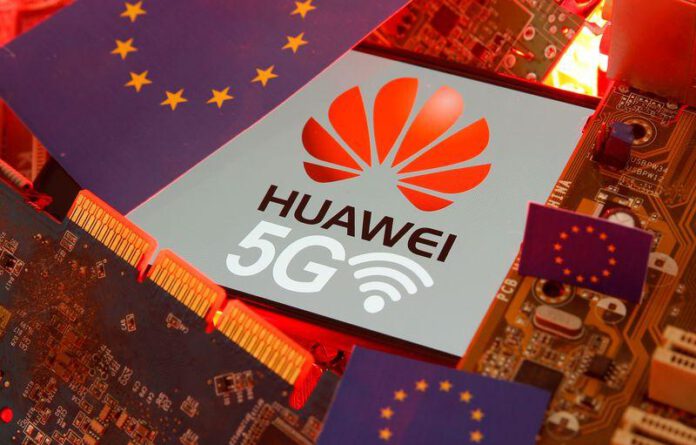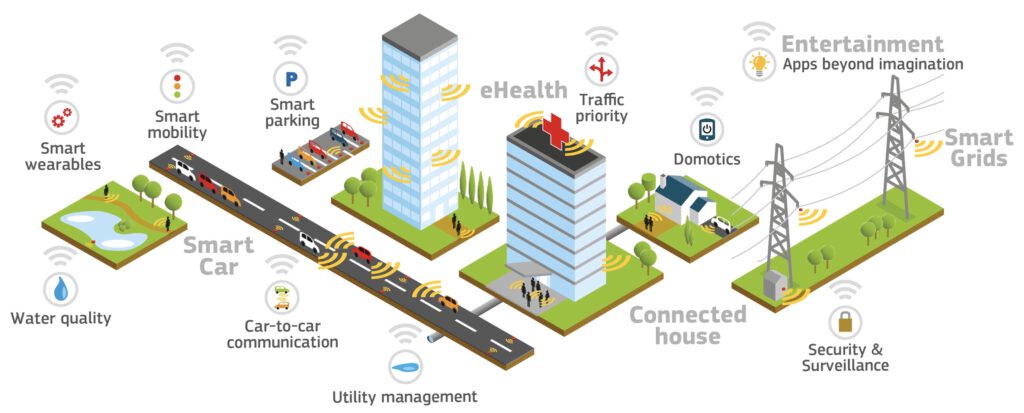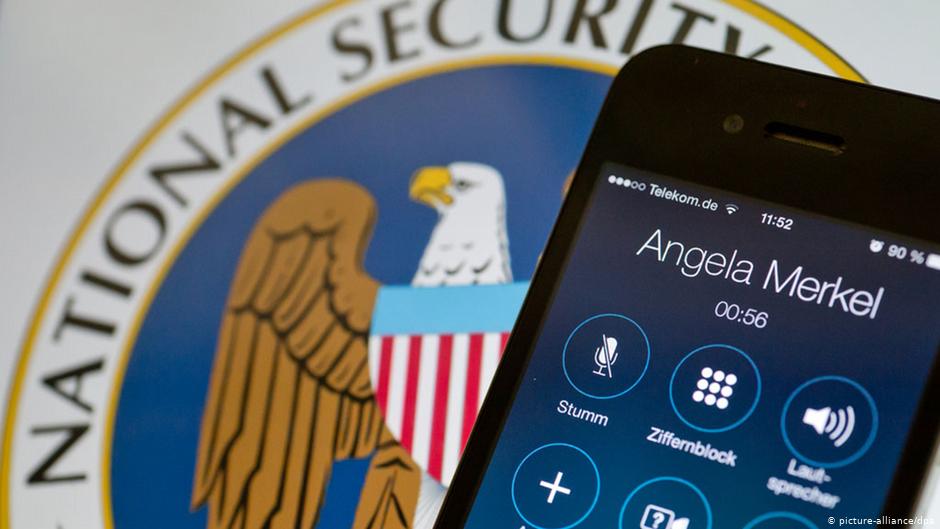
Worldwide political concerns rise along with trending discussion of the balance between developing 5G and ensuring national security, as China is the first country to release 5G technology to domestic consumers, and China aims to promote it globally, which brings controversies centered around the relationship between Chinese information and communications technology (ICT) company and the Chinese government.
Obviously, China wishes to lead the 5G evolution due to previous disadvantage development of 2G, 3G, and 4G which certainly is a drag to its society advancement. Reviewing the developing path of generations of wireless networks reminds us of the life changes: 1G (1979) brought phone call to the world; 2G (1991) let people to text each other, 2.5G and 2.75G came with GPRS and EDGE; 3G (1998) achieved a better but limited internet usage experience, 3.5G arrived with mobile applications; 4G (2008) allowed voice and data, 4G long term evolution (LTE) doubled data speeds. In fact, if there is a chance to be advanced in the revolution of wireless networks, any country would like to be the one to gaze it. If cannot be the first one, even following the trend rather than standing alone to lose the right moments. Missing an opportunity in technology revolution equals being behind an era in economic advancement.
Global system for mobile communications (GSMA), an industry organization representing the interests of mobile network operators worldwide, points out that information and communication technology (ICT) has become a fundamental element of modern society to grow economic sustainably.
5G technology has to meet 8 specific requirements:
- Up to 10 Gbps data rate, representing 10 to 100x improvement over 4G and 4.5G networks
- 1-millisecond latency
- 1000x bandwidth per unit area
- Massive amount of connected devices per unit area, around 100x improvement over 4G network
- 99.999% availability
- 100% coverage
- 90% energy reduction of network usage
- Up to 10 years of battery life for low power LoT devices
What we can expect for 5G is a highly connected society operating efficiently and interacting actively with every participant, either device and any application.

The importance that 5G plays in an economy goes without saying, the secure issues are obvious as 5G connects everything so tightly to a new level that any potentially uncontrollable risk may cause a national security crisis, and political risk is included.
On 24th March, around which time China just got rid of the first epidemic of coronavirus and started to recover its economic and technical development, meanwhile Europe and the USA were trapped in the first epidemic of coronavirus and experienced a huge economic loss, the ministry of industry and information technology (MIIT) of Chinese government published a Notice Concerning Promoting the Accelerated Development of 5G (MIIT Communications No.(2020)49), which is the latest national 5G supportive policy requiring to be implemented strictly. The notice divides into 5 parts directing construction, application, research, security protection, and policy implementation, which aims to accelerate 5G network construction by supporting telecommunications enterprises, strengthening industrial corporation, and encouraging local governments to entre location resources required for 5G network construction; enriching the vista for various 5G technology applications of healthcare, transportation, education, entertainment to build a 5G ecological system; enhancing the 5G technology research and development; building 5G security protection for infrastructure, data, and cybersecurity; all directions are required to be coordinated and corporated cross departments with information exchanges.
The worries are reasonable to a certain extent for many countries since the Chinese government indeed offers supportive policies to information and communications technology (ICT) companies and significantly rules major mobile operators. Even though some leading information and communication technology (ICT) companies, such as Huawei, tried serval times to clarify its independent market position with shreds of evidence but failed to win trusts back as the world exclusive China refers Chinese rising technology and related market to Chinese governmental leadership.

There are 3 ways to face China and its 5G technology, accept it without animosity, use it wisely and selectively, and reject it for all possibilities. The USA, Canada, Australia, New Zealand, UK, and Japan decided on Huawei 5G ban as they are fully confident of national security issues brought by Chinese 5G shortly. The Philippines and South Korea accepted Chinese 5G as no evidence to accuse it. Poland, Germany, and France won’t ban Chinese 5G totally but do apply stricter security requirements on all wireless networks. The chosen attitudes are grouped by interests, European union should stand for safe, stable, and sustainable development, it led previous generation telecommunications, but gets a little behind the 5G times. China may not be a trustworthy partner, but the USA definitely won’t be a better choice. In 2019, U.S Department of State stated “Germany is one of the United States’ closest and strongest allies in Europe…Our political, economic, and security relationships, critical to shared prosperity and continued stability…”, but Germany should never trust the USA that much again after 2013, when SPIEGEL revealed that united states intelligence agencies targeted Chancellor Angela Merkel’s cellphone and used the American Embassy in Berlin as a listening station to monitor important political communications.
The USA triggers the 5G war in the name of data protection and national security, diverting people’s attention away from itself deliberately, which is only a deceptive trick. Even stated Germany as a close allie, but another statement desires to be remarked that “The United States provides no development assistance to Germany.” Considering historical corporations, choosing China can be negotiated relatively easier, at least Chinese policies aim to achieve win-win development.
In 2018, the Chinese government announced a policy based on the China-EU Science and Technology Cooperation Joint Steering Committee, which mentioned the concerns brought by Chinese 5G and the potential future built by the two sides.
“China and the EU need to support each other and carry out exchanges and cooperation in developing ‘Digital China’ and the EU Digital Single Market. Make good use of such mechanisms as the China-EU dialogue on information technology, telecommunications and informatization, and the China-EU digital economy and cybersecurity expert working group, deepen cooperation on 5G, promote technological exchanges and standardization cooperation on the digital economy, internet of things, internet of vehicles, industrial internet, artificial intelligence and smart cities…”
“Noting the higher requirements made by the EU General Data Protection Regulation (GDPR) on privacy protection, data security, and trade and investment for corporations with digital businesses in Europe…China will continue to carry out exchanges, mutual learning and cooperation with the EU on data protection to better protect personal information and the legitimate rights and interests of citizens.”
On 29th November 2019, EU-China Symposium on Data Security and Personal Information Protection was held in Bruxelles. Officers, researchers, lawers, and representatives of information and communication technology (ICT) companies from China and the EU discussed the system design and application of data protection and personal information based on technical innovation. The forum aims to be helpful to build a mutual trust system soon.
Building an EU-China mutual trust system of data protection and security is an ideal solution to enforce Chinese 5G development and application in the EU. A system that adapts competitive advantages both in technology and prices from China 5G, and meets the integrated regulation of data protection from the EU. Such a system supervised by European Data Protection Supervisor (EDPS) with active Chinese information and communication technology is no doubt a sufficient and efficient condition to let Chinese 5G enter the EU market and to allow the EU accept Chinese 5G with a guaranty.
Source:
- U.S Department of State (https://www.state.gov/u-s-relations-with-germany/)
- Ambassade de la Republique Populaire de Chine en Republique Francaise (http://www.amb-chine.fr/chn/zgyw/t1623918.htm)
- SPIEGEL International (https://www.spiegel.de/international/germany/nsa-spying-fallout-majority-of-germans-mistrust-united-states-a-932492.html)
- Ministry of Industry and Information Technology of the People’s Republic of China (http://www.miit.gov.cn/n1146295/n1652858/n1652930/n3757020/c7832258/content.html)
- Global system for mobile communications (GSMA) (https://www.gsma.com/futurenetworks/ip_services/understanding-5g/)
- European Union website (https://ec.europa.eu/digital-single-market/en/towards-5g)
- Stanford University (https://mse238blog.stanford.edu/2017/07/ssound/1g-2g-5g-the-evolution-of-the-gs/)
- reuters.com / dw.com



